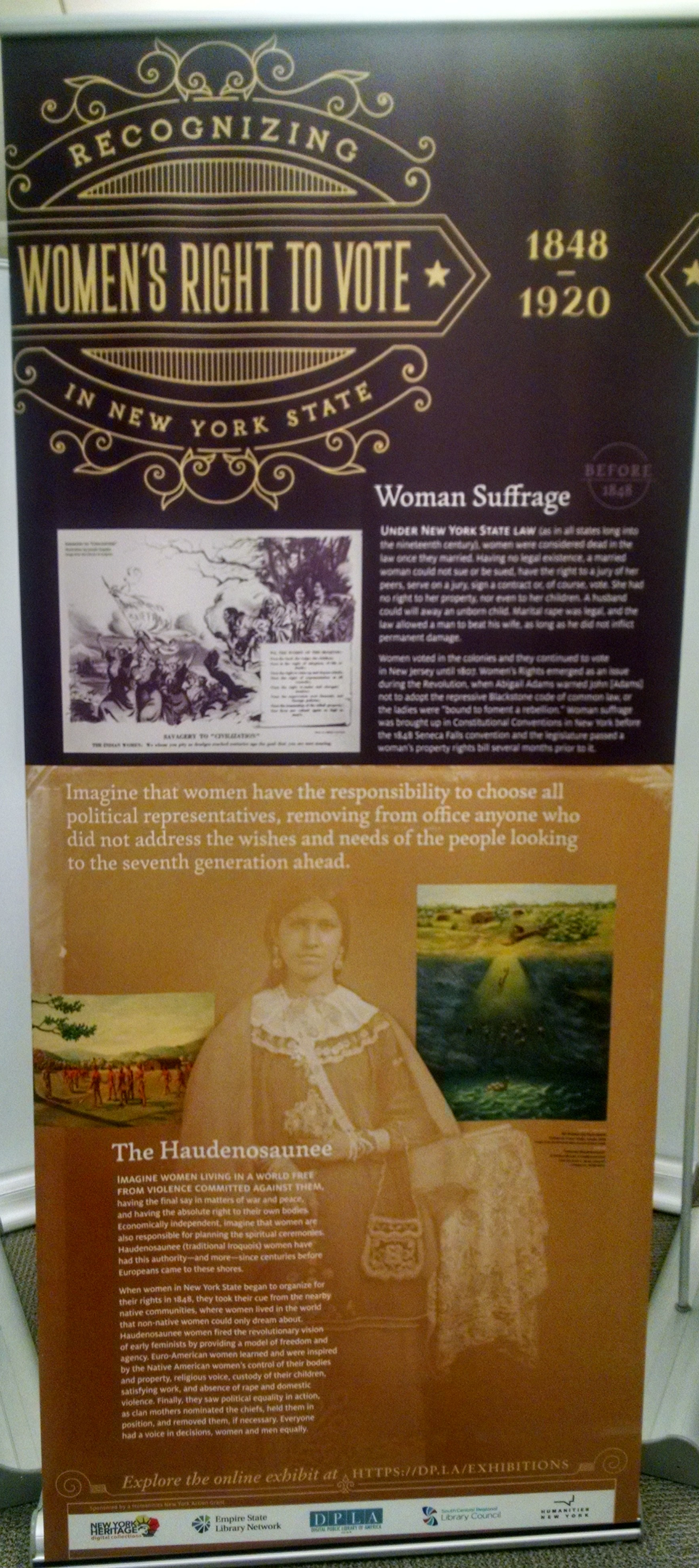Alfred University’s Herrick Memorial Library is hosting the traveling exhibit, Recognizing Women’s Right to Vote in New York State, from now through Friday, March 2.

New York State is celebrating the centennial of women gaining the right to vote in New York State on November 6, 1917—three years before the 19th Amendment was passed and women throughout the United States gained the right to vote. The South Central Regional Library Council and the Empire State Library Network have partnered with the Digital Public Library of America on the exhibit, which looks beyond the traditional Women’s Suffrage narrative and explores the history behind the movement that made New York State such an important place in the fight for Women’s Suffrage.
The exhibit includes five panels, each showing a different theme:
Woman Suffrage before 1848 – Explores voting in New York State before the Seneca Falls Convention in 1848, including in the colonies and among the Haudenosaunee people.
Women’s Rights Activity up to 1848 and the Seneca Falls and Rochester Conventions – Women and men organized to restore the right to vote to women, among other rights.
Pop Culture Suffrage – Suffragists displayed brilliance when it came to promoting their cause, and packaged their message in consumer goods, created songs and theater performances, formed parades and processions, and traveled through rural areas, knocking on doors.
Anti-Suffrage – Most women and men believed that equality for women would lead to the destruction of the state. The Anti-suffrage movement engaged in public debates, created publicity materials to counter those of the suffragists, and argued that support for Women’s Suffrage was unpatriotic, especially during World War I.
Race and Diversity – The early Women’s Suffrage movement embraced women of all races, but overt racism in the later years led some suffragists to argue for the inclusion of all races winning the right to vote—including those effectively denied their voting rights.
For more information, contact Herrick Library at herricklibrary@alfred.edu.